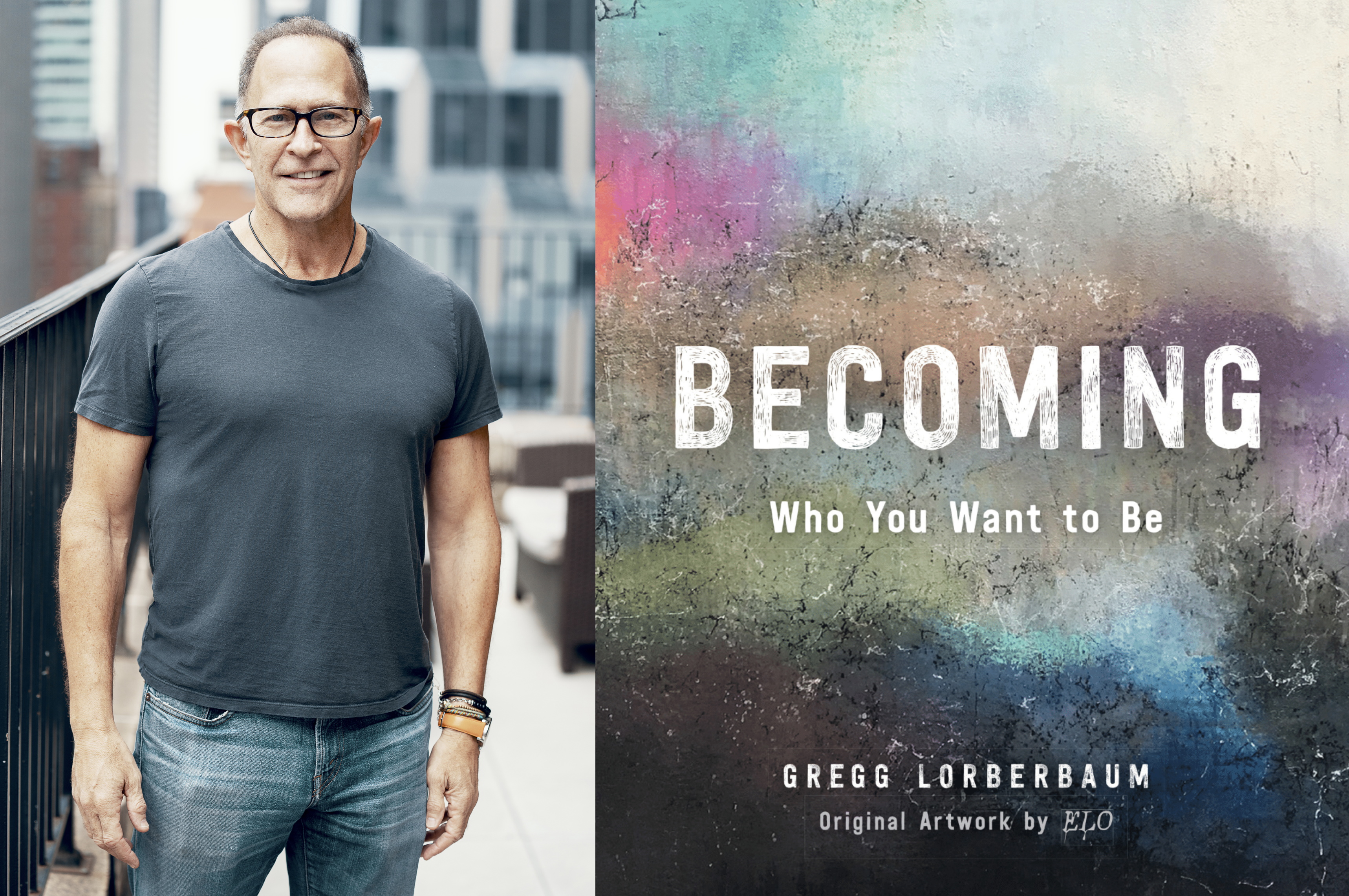
It’s no secret that everyone aspires to be the best versions of themselves, but there might not always be a solid process to help achieve that goal. If you’re someone who’s facing angst over work, love or life in general – you will be charmed AND changed by a new book, Becoming Who You Want to Be by real estate mogul, coach and mentor, Gregg Lorberbaum.
Becoming Who You Want to Be is Gregg’s way of sharing the many lessons he’s learned through his life with a diagnosed learning disability. By developing skills of self-reflection, communication, and relationship building, he overcame this disability and established himself as one of NYC’s most accomplished commercial real estate brokers. Lorberbaum has since become a consultant and coach, sharing his unique approaches as well as concepts that help his client base and helping others to achieve their own level of success.
Throughout Becoming Who You Want to Be, Lorberbaum highlights his daily journals that account for nearly thirty-five years of his life, featuring victories, setbacks, and more. Lucky for us, we were able to chat and discuss all things Becoming.
What is Becoming Who You Want to Be?
Gregg Lorberbaum (GL): It is the evolutionary process of understanding time differently and then “acting in ways that pay it forward to your future self.” Through this process, which is largely based on understanding your past behaviors, you can make better decisions regarding achieving your future objectives. By accomplishing those objectives you gradually grow into who you want to be.
Who has been your biggest inspiration or reason for this new book?
GL: Due to a change in my employment status (starting my own boutique brokerage firm) I was afforded the additional time to start a pro bono coaching practice. I found that people who I coached in the methods shared all benefited significantly and were happier personally and more productive at work regardless of their industry. I knew I was on to something and decided that it was too important (and too effective) to not be shared. I have helped well over 100 people that have all seen dramatic improvement if they followed the process that I have laid out.
What lessons did you learn from your learning disabilities?
GL: I learned very early on that I was categorized as “one of the dumb kids” so I believed, based upon what I had been told by my mother, that I had the antidote. I understood that I would have to work much harder than other people, but as long as I was willing to do so I would be able to compensate for my “blatant deficiencies.”
After years of coaching, what was your “Ah-Ha” moment?
GL: The Ah-Ha moment for me in my life which has affected my coaching is that almost all situations that are not working out to your satisfaction are at least part, if not all, of my own fault. Once you recognize that many situations can be improved by analyzing your past behavior and owning your mistakes, you can learn from them.
What skills do you hope people will garner from reading the book?
GL: Personal and professional accountability. This is by far the most important message but more specifically, it is that you must do the things you say you are going to do which then leads to the power of positive thought, and then that leads to the law of attraction and finally the world conspires to your advantage.
Can you explain why Paying it forward is important?
GL: We evolve into our future self based upon the consequences of our actions, and gradually over time those of us that understand that will experience “deferred gratification” through commitment to evolve into who we want to be based upon sacrifices we would need to make, i.e. getting through medical school to be a doctor or working out everyday in your 20s so you can feel great in your 60s.
What is your tool kit and how has it helped you with your everyday life?
GL: The tool kit starts of with an exercise called “Three Things, One Thing,” and like most good ideas it is quite simple: you come up with three tasks that you will definitely do each day and one thing that you will not. Generally we start off with easy things to accomplish such as making your bed, flossing, and doing four push ups and then one more each day. The one thing we won’t do can be to not eat unhealthy food after 10pm. It can be something that you can avoid doing that is not challenging. In about 3-4 days it leads to a little bounce in your step, and by the second week most people start increasing the things they will do to more difficult tasks in order to achieve that same good feeling.
From there, we take this habit of doing the things we say that we are going to do and we apply them to the next element and the most important: the Role Based Lifestyle. The Role Based Lifestyle is quite simple: put all the roles you find yourself in order of importance and then you gradually start thinking of behaviors that you can exhibit that would improve each of your roles (critical to the success of this exercise is that you surrender the evaluation of how well you are doing in your roles to the person on the receiving end).
Additionally, the toolkit involves a “project management approach” and within this exercise we divide anything you are hoping you accomplish into many baby steps and then we systematically go through the steps by doing the things we say we are going to do to accomplish what you want. This works in both writing a book, participating in an art show, or purchasing your dream home.
The approach applies to virtually anything you are hoping to accomplish. Finally, the toolkit has an attribute index and pro/con analysis and these tools are vital in helping people make decisions during times of transition that include anything from getting to the right job, living in the right community or planning a destination vacation.
You journal and document a lot of your life in the book, why people should try doing the same?
GL: As somebody that has a significant learning disability, and has subsequently gone on to have a happy and successful life to this point, I attribute virtually all of my success to the single fact of journaling. Every day, I write no more than 5 minutes about the day before. Nothing earth shattering, just who I was with, what I did, and what was important to me at that time. Then, I go back and I review the journal entry from exactly one year ago to the day. Often I go back 5 years and 10 years, but always at least one year earlier. Then I reflect.
This process gives me a unique glimpse into the cause and effect of my own behavior and gives me the ability to learn and grow from my past actions by literally paying it forward to my future self by studying how I could better achieve my objectives by focusing on what part I must have played in a moment that I did not succeed in. Also, through journaling I have far more detailed memories of times I spent with loved ones that are no longer with me and I can have a good laugh at ways that I may have thought or acted in previous times in my life.
What is your favorite life mantra?
GL: “I am, I am doing, I shall become.”
For more on Gregg Lorberbaum and his coaching practice, visit: www.glrealadvisors.com. Grab your copy of Becoming Who You Want to Be on Amazon today!
Photo credits: c/o Gregg Lorberbaum, www.glrealadvisors.com.

